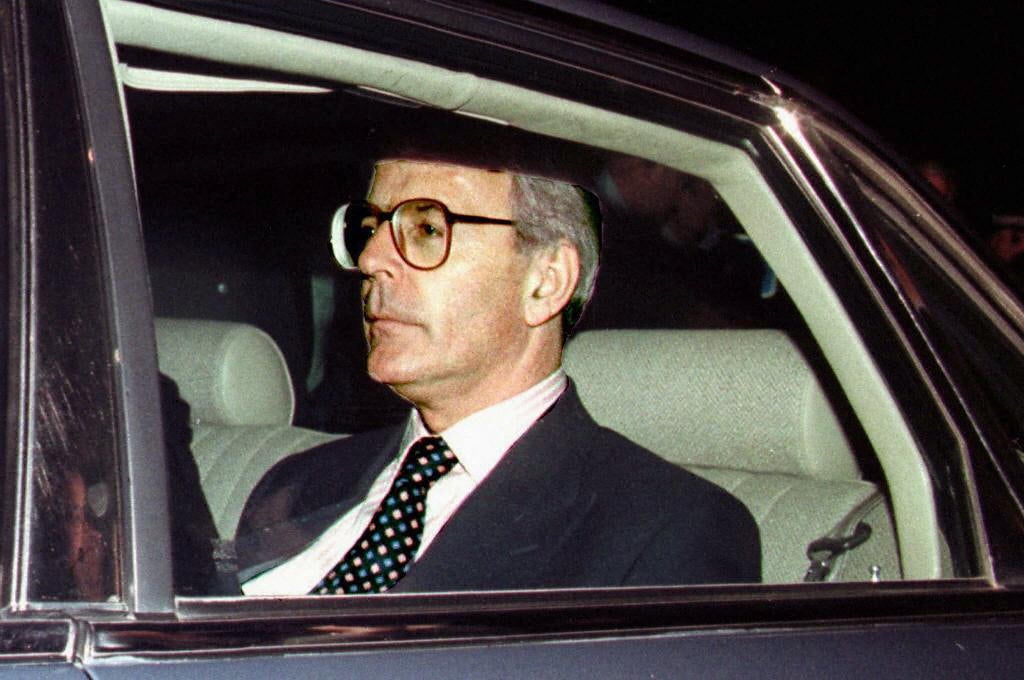Tory MPs are haunted by the ghost of John Major
Despite today’s efforts to raise morale, some Tories privately prepare for opposition, writes Andrew Grice


What’s uppermost in the minds of Conservative MPs? The cost of living crisis, the endless waves of strikes or the parlous state of our NHS? No, they are obsessing about whether next year’s general election will be like 1992, when John Major defied the opinion polls to win a surprise victory, or 1997, when the Tories suffered a crushing defeat.
Although Rishi Sunak rehearsed a tougher line on the small boats crisis (coming soon), “reasonable Rishi” was on display in his interview with Piers Morgan on Talk TV last night.
His low-key, likeable, common-sense approach reminded me of Major. Veteran Tory MPs tell me Sunak can, like Major after he succeeded Margaret Thatcher, gradually win voters’ respect in hard economic times and secure a mandate in his own right. The Tories won an unprecedented fourth term in 1992, so why can’t Sunak break that record with a fifth victory running in 2024?
William Hague, the former Tory leader, cheered up the cabinet at its recent Chequers awayday by insisting the next election could be a repeat of 1992 rather than 1997. “We got a new leader who was more popular than the party [as Sunak is now] and won in 1992,” Hague told ministers. “It is a remarkably similar circumstance.”
But are the Tories merely whistling to keep their spirits up? As someone who covered both the 1992 and 1997 campaigns, I suspect we are currently much closer to 1997. In 1992, the Labour opposition lost an election it should have won; disproving the maxim that governments lose elections and oppositions don’t win them.
Although Neil Kinnock had marginalised the left and shifted policy to the centre (as Keir Starmer has done) doubts about him and Labour’s tax-raising plans were blamed for the party’s defeat.
On the road following Kinnock around for three weeks in 1992, I recall, senior Labour figures privately doubted the polls showing the party would win.
The surveys reflected media plaudits of Labour’s campaign rather than voting intention. Kinnock noticed that many voters he met avoided eye contact with him. He had been Labour leader for eight years, while the relatively unknown Major was a fresh face. “I was a Marmite figure,” Kinnock admitted on Times Radio today. “He was a marmalade figure.”
Starmer is learning from Labour’s 1992 mistakes, notably by providing reassurance on tax. He will likely repeat the Blair-Brown 1997 promise of “no income tax rises” rather than propose increases as Labour did in 1992. Starmer needs to pass the “eye test” Kinnock failed and I think he will. However, Starmer is “not Tony Blair” and still needs to convince voters he is what he says he is; that was a problem for Kinnock, who was portrayed by right-wing newspapers as still on the left. The Tories will try the same tactic against Starmer; Sunak already accuses him of having “no principles”.
Labour minds are also turning to the “1992 or 1997?” question. It’s a tricky one. Starmer wants to show momentum but knows the party’s 20-point lead in the polls will probably narrow. He rightly guards against complacency and can’t afford to take voters for granted by dreaming of a landslide. Peter Mandelson, who became an MP at the 1992 election after overhauling the Labour’s communications, tells BBC Radio 4’s The Week in Westminster programme tomorrow: “This is not 1992 for the Tories and not yet 1997 for Labour.”
The parallels between Sunak and Major in 1992 have their limits. Indeed, some Tory MPs don’t buy the party’s optimistic spin. As one put it: “I fear it could be even worse than 1997.”
In 1990, many voters were relieved to see Thatcher depart after 11 years and, crucially, felt they had had a change of government when Major took the helm. The Tories were broadly united, including on economic policy; their civil war on Europe broke out between 1992 and 1997. But we have had five Tory PMs since the party regained power in 2010.
Today, the Tories are faction-ridden and deeply divided on the economy, especially over the tax cuts demanded by the right. They are far from united behind their leader; as Hague admitted they will need to be to win next year.
The two previous leaders, Boris Johnson and Liz Truss, are ghosts determined to spoil Sunak’s feast, with Johnson dreaming of a comeback and Truss about to defend her “go for growth” strategy, amplifying Tory divisions. As by 1997, the Tories have lost their reputation for economic competence, are engulfed by sleaze allegations and have a leader who looks too weak to stand up to his party’s rebellious MPs.
In 1997, I recall, many Tory MPs were resigned to defeat, even though they were shocked by Labour’s massive 179-seat majority. Despite today’s efforts to raise morale, some Tories privately prepare for opposition.
In 1997, Blair performed well after completing Kinnock’s herculean spadework, but normal service resumed in that it was mainly an election lost by the government rather than won by the opposition. As things stand, 2024 looks like providing a repeat.






Join our commenting forum
Join thought-provoking conversations, follow other Independent readers and see their replies
Comments